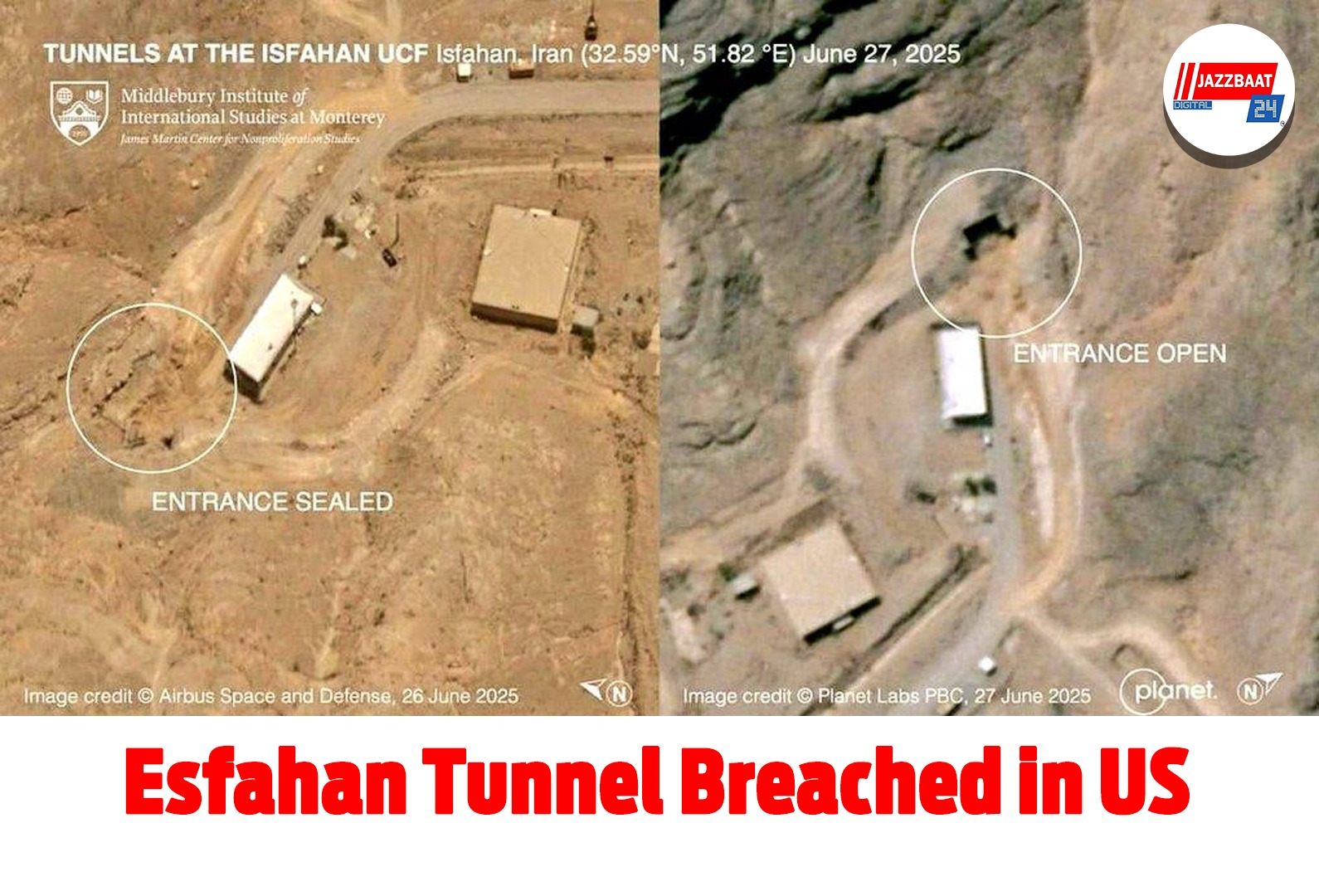
Vienna, 28 June 2025:
As part of a larger operation that also targeted Natanz and Fordow earlier this month, the International Atomic Energy Agency (IAEA) has confirmed that the United States hit the entrance to one of the deep underground tunnels at Iran's uranium conversion facility in Esfahan.
The entrances "appear to have been hit" in the recent strike, which was carried out on June 22 using Tomahawk cruise missiles rather than bunker buster bombs due to the site's extreme depth, the IAEA press release stated. The tunnels in question were used to store enriched uranium.
The Uranium Conversion Facility and related fuel fabrication facilities are part of Esfahan's nuclear complex, which is located almost 100 meters below the surface, deeper than the Fordow enrichment center. The US had to use Tomahawk missiles to target above ground structures directly above the tunnel network because conventional bunker buster munitions were ineffective at such depth. "Entrances to tunnels used for the storage of enriched material appear to have been hit," said Rafael Mariano Grossi, Director General of the IAEA, in Vienna. Although there was no proof of off site radiation leaks, he added that multiple buildings at the complex had also been damaged.
This most recent attack comes after Israel's previous raids on Esfahan on June 13 that included the use of conventional weapons against ancillary nuclear infrastructure. According to the IAEA, the US strikes also caused damage to buildings used for laboratory operations, fuel rod manufacturing, and uranium metal processing. Due to the impracticability of deploying bunker busters at such depth, Tomahawk missiles were reportedly launched from a US Navy submarine and only hit surface targets. Analysts' review of satellite imagery reveals impact craters and infrastructure damage, but they are unable to ascertain whether the deep tunnels themselves were compromised.
According to state media, Iran has reaffirmed its commitment to carry on nuclear operations with "greater strength" and started work to quickly rebuild the facility. The IAEA cautions that future inspection access might be restricted, particularly as Iran's parliament contemplates leaving the Non Proliferation Treaty, which could interfere with oversight. The technical difficulties in targeting Iran's deeply buried nuclear sites are highlighted by the strike's sophistication.
Experts warn that the complete impact on underground operations is still unknown, despite the fact that damage at the surface has been confirmed. Iran's defiant response to this most recent round of attacks signals a dangerous escalation with serious security and diplomatic ramifications.